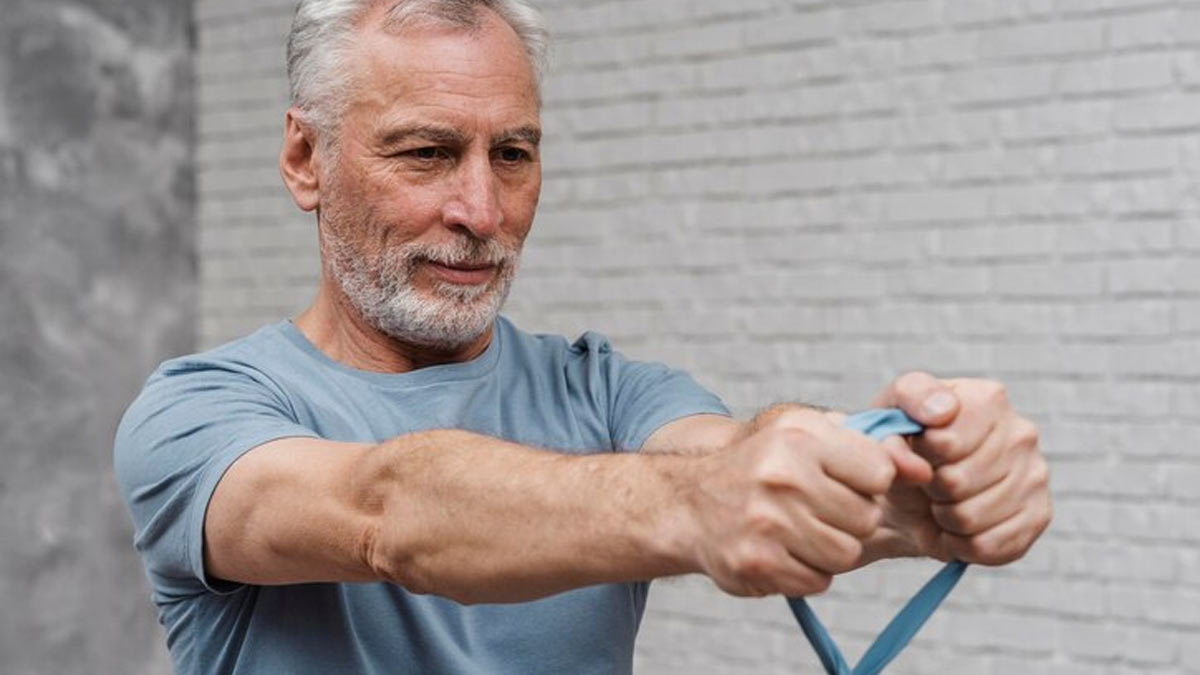
Muscles are an important part of our body. It contracts and relaxes to produce movement, supports bone health, helps maintain posture and balance, and also protects vital organs in our body. Additionally, it assists in breathing, supports digestion, and also facilitates blood flow throughout the body.
Table of Content:-
However, muscle loss is a common problem that comes with ageing. Also known as sarcopenia, it can impact quality of life, increase the risk of falls and injuries, and, in some cases, can also cause disability. It is therefore not only important to understand factors that increase your risk of muscle loss as you age but also learn about some ways to prevent it.
Also Read: Muscle Growth: 7 Ways To Speed Up Muscle Growth
Causes Of Muscle Loss As We Age![]()
Dr Hitesh Garg, Head - Ortho Spine Surgery, Artemis Hospitals, says, "Muscle loss is primarily caused by a decline in anabolic hormones, such as testosterone and growth hormone, which stimulate muscle growth and repair."
She adds that age-related changes in muscle fibres, reduced physical activity, and decreased protein intake can also contribute to muscle loss.
According to Harvard Health Publishing, after age 30, people begin to lose as much as 3-5% of muscle per decade. Most men will lose about 30% of their muscle mass during their lifetimes.
Dr Garg shares that preventing muscle loss is crucial for maintaining strength, balance, and overall function in older adults. It can help reduce the risk of falls, fractures, and disability. Moreover, preserving muscle mass can improve quality of life and independence.
Here's a look at how you can prevent muscle loss as you age.
A Healthy Diet Is Key![]()
“A balanced diet plays a vital role in maintaining muscle mass,” says Dr Garg, adding that adequate protein intake is essential for muscle repair and growth.
Complete proteins, found in animal sources like meat, poultry, fish, eggs, and dairy, are particularly beneficial. Plant-based sources of protein, such as beans, lentils, tofu, and tempeh, can also be incorporated into a healthy diet.
Additionally, consuming enough calories is also important to support muscle growth and repair. This is especially true for older adults who may have reduced appetites or difficulty maintaining weight. Most importantly, staying hydrated is crucial for overall health and can help prevent muscle fatigue.
Also Read: Role Of Muscle Memory In Body Transformations: Harnessing The Power Of Past Training
Exercises That Might Help
As far as preventing muscle loss is concerned, Dr Garg recommends regular strength training exercises involving working against resistance, such as using weights, resistance bands, or bodyweight. Examples of effective exercises include squats, lunges, push-ups, rows, and bicep curls.
Research also suggests that aerobic exercise, like running or swimming, can help prevent muscle loss and weakness as we age.
While most research has focused on strength training, new evidence shows that long-term aerobic exercise can also benefit muscle health.
Aerobic exercise seems to help maintain muscle cells, nerve connections, and energy production, which are all important for strong muscles, as listed in a study published in the journal Current Opinion in Physiology.
Remember that it is important to gradually increase the intensity and resistance of workouts over time to continue challenging the muscles. Additionally, incorporating exercises that improve balance and coordination, such as Tai Chi or yoga, can help prevent falls and injuries, says Dr Garg.
Sleep Is Essential![]()
What many people do not realise is how sufficient and quality sleep can benefit muscle health.
Dr Garg notes that getting enough sleep is essential for muscle recovery and growth. This includes aiming for 7-9 hours of quality sleep each night.
Proper sleep is said to help your body produce Human Growth Hormone (HGH) and other substances that support muscle tissue. Additionally, it can also help your body build new proteins that are necessary for muscle repair and growth.
In general, sleep is essential for overall health and well-being.
Conclusion
While muscle loss is a natural part of ageing, it is not entirely unavoidable. By incorporating regular strength training, maintaining a balanced diet rich in protein, and staying physically active, you can slow down muscle degeneration and preserve strength and mobility. Prioritising a healthy lifestyle as you age not only helps prevent muscle loss but also enhances overall well-being and quality of life.
Also watch this video
How we keep this article up to date:
We work with experts and keep a close eye on the latest in health and wellness. Whenever there is a new research or helpful information, we update our articles with accurate and useful advice.
Current Version



